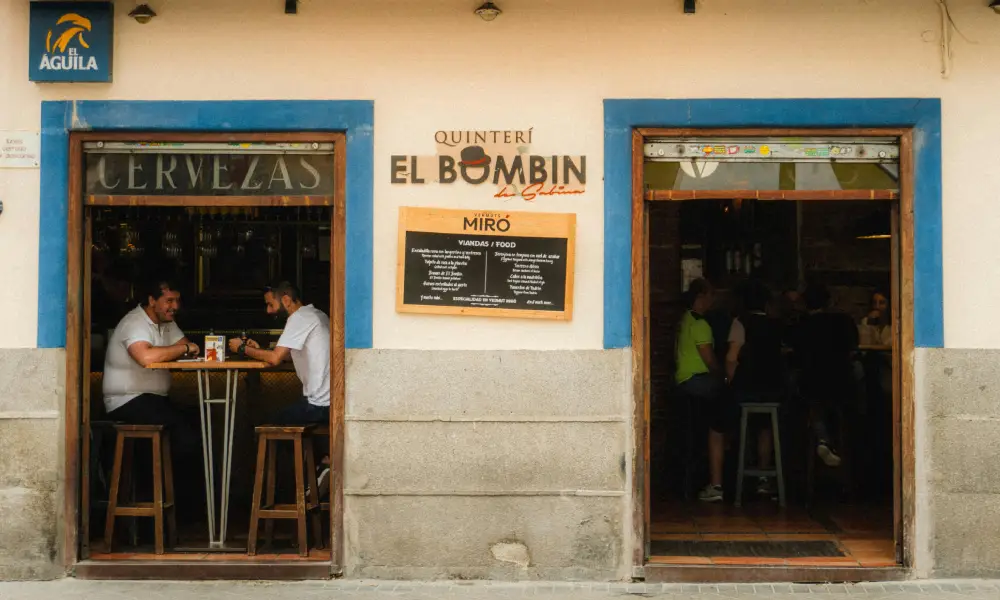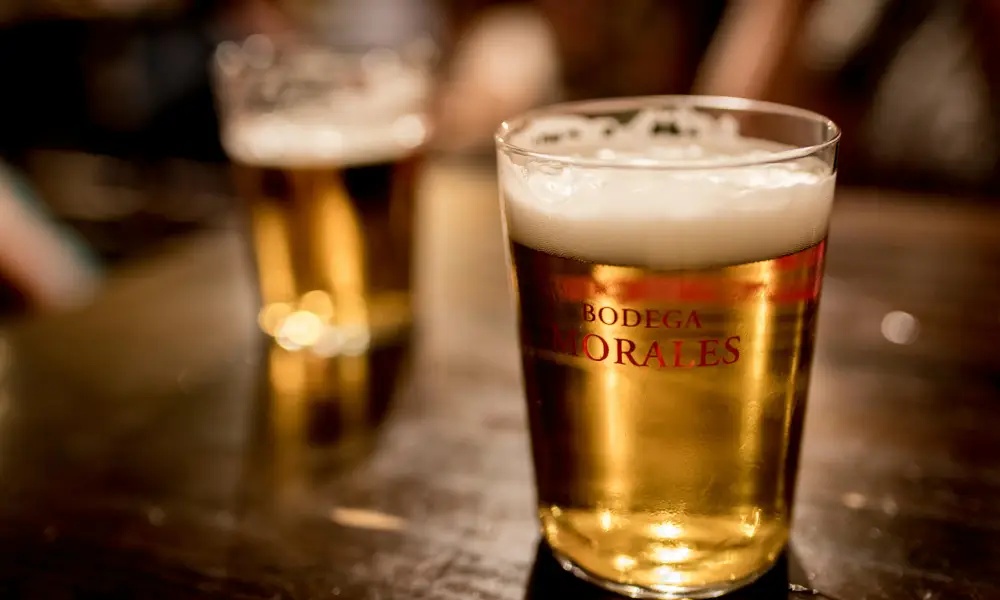How to say cheers in Spain opens up a delightful world of Spanish social customs that go far beyond simple translations. Toasting in Spain is an art form deeply woven into the country’s social fabric, where the right words at the right moment can transform a simple drink into a meaningful connection with locals who value authentic human interaction above almost everything else.
Understanding Spanish toasting culture means appreciating the rhythm of Spanish life, where sharing drinks isn’t just about alcohol but about celebrating relationships, marking special moments, and showing respect for the people around your table. Whether you’re enjoying tapas in a bustling Madrid bar or sharing wine at a family gathering in Andalusia, knowing how to toast properly will open doors and hearts throughout Spain.
The Most Common Ways to Say Cheers in Spain
Spanish has several expressions for toasting, each carrying its own tone and appropriate context for different social situations.
¡Salud! The Universal Spanish Toast
¡Salud! (pronounced sah-LOOD) literally means “health” and serves as Spain’s most universal toasting expression. This simple word works perfectly in virtually every situation, from casual beer with friends to formal dinner parties with colleagues.
- Universal acceptance: Understood and appreciated throughout all Spanish speaking regions
- Appropriate timing: Perfect for any alcoholic or non alcoholic drink
- Pronunciation tip: Emphasize the second syllable with a clear “oo” sound
- Cultural significance: Reflects Spanish values of wishing wellness upon others
¡Chin chin! The Playful Option
¡Chin chin! (pronounced chin-CHIN) brings a playful, almost childlike joy to Spanish toasting. This expression mimics the sound of glasses clinking together and adds lightheartedness to any drinking occasion.
- Casual atmosphere: Best used among friends or in relaxed social settings
- International recognition: Similar expressions exist in many languages worldwide
- Festive occasions: Perfect for celebrations, parties, and joyful gatherings
- Age appropriate: Often used when children are included in family toasts with juice or soft drinks
Regional Variations and Cultural Context
Spain’s diverse regions each bring their own linguistic flavors to toasting customs, reflecting local languages, dialects, and cultural traditions that enrich the toasting experience throughout the country.
Formal vs Informal Toasting Situations
Spanish society distinguishes clearly between formal and informal social contexts, and your toasting approach should match the situation’s tone and importance.
Formal Occasions
- ¡Brindemos por…! meaning “Let’s toast to…” followed by the reason for celebration
- ¡Por el éxito! meaning “To success!” appropriate for business contexts
- ¡Por la familia! meaning “To family!” perfect for family gatherings
- ¡Por la amistad! meaning “To friendship!” when building new relationships
Informal Social Gatherings
- ¡A por todas! meaning “Go for it all!” expressing enthusiasm and support
- ¡Por los buenos momentos! meaning “To good times!” celebrating present joy
- ¡Que viva la vida! meaning “Long live life!” embracing Spanish joie de vivre
- ¡Por nosotros! meaning “To us!” showing appreciation for your companions
Spanish Toasting Etiquette and Cultural Rules
Understanding proper toasting etiquette helps you avoid social mistakes while demonstrating respect for Spanish customs and the people sharing drinks with you.
Eye Contact and Physical Gestures
- Direct eye contact: Always look directly at each person when clinking glasses
- Individual acknowledgment: In small groups, clink glasses with each person separately
- Glass positioning: Hold your glass at chest level, never above eye level
- Two handed respect: Use both hands when toasting elderly people or in very formal situations
What to Avoid
- Never toast with water: Spanish superstition considers this bad luck
- Avoid crossing arms: Don’t reach across others when clinking glasses
- Don’t rush: Take time to make eye contact and speak clearly
- Skip overly personal toasts: Keep public toasts inclusive and positive
Special Occasion Toasts
Different celebrations and milestones call for specific toasting phrases that acknowledge the significance of the moment and show cultural awareness.
Birthday Celebrations
- ¡Feliz cumpleaños! meaning “Happy birthday!” followed by the person’s name
- ¡Por muchos años más! meaning “To many more years!” wishing longevity
- ¡Que cumplas muchos más! meaning “May you celebrate many more!” traditional birthday wish
Wedding and Anniversary Toasts
- ¡Por los novios! meaning “To the bride and groom!” wedding standard
- ¡Por el amor! meaning “To love!” romantic and heartfelt
- ¡Por muchos años de felicidad! meaning “To many years of happiness!” for anniversaries
Business and Professional Toasting
- ¡Por el éxito del proyecto! meaning “To the project’s success!” acknowledging work
- ¡Por una colaboración fructífera! meaning “To fruitful collaboration!” building partnerships
- ¡Por el futuro! meaning “To the future!” expressing optimism
Toasting with Different Types of Drinks
Spain’s diverse drinking culture means different beverages often call for specific toasting approaches and phrases that reflect the drink’s cultural significance.
Wine Toasting Culture
- ¡Por el buen vino! meaning “To good wine!” appreciating quality
- ¡Salud y pesetas! traditional toast meaning “Health and money!”
- Regional wine acknowledgment: Recognizing local wine varieties and vintages
Beer and Casual Drinking
- ¡Salud! works perfectly for beer in any situation
- ¡Chin chin! popular choice for casual beer drinking
- ¡Por la cerveza fría! meaning “To cold beer!” during hot weather
Modern Spanish Toasting Trends
Contemporary Spanish society blends traditional toasting customs with modern influences from social media, international culture, and changing social patterns.
Technology and Social Media Influence
- Instagram moments: Toasts often become photo opportunities for social sharing
- International phrases: Some young people incorporate English phrases like “Cheers!”
- Creative presentations: Modern bars create visually appealing toasting experiences
Generational Differences
- Traditional vs modern: Older generations prefer classical phrases while younger people experiment
- Language mixing: Young Spanish speakers might blend Spanish and English in toasts
- Formality evolution: Younger generations tend toward more casual toasting styles
Learning and Practice Tips
Developing natural Spanish toasting skills requires consistent practice, cultural observation, and willingness to make mistakes while learning authentic Spanish social customs.
Pronunciation Guidelines
- Roll your Rs: Spanish R sounds require tongue rolling for authentic pronunciation
- Clear vowels: Spanish vowels are shorter and clearer than English equivalents
- Practice phrases: Repeat common toasts until they feel natural
- Confidence matters: Spanish speakers appreciate effort over perfection
Cultural Integration
- Observe interactions: Watch how Spanish people toast in different situations
- Practice with locals: Join Spanish social events and gatherings
- Accept mistakes: Learn from errors without self criticism
- Build relationships: Use toasting as a way to connect with Spanish speakers
Embracing Spanish Toasting Culture
Learning how to say cheers in Spain represents much more than memorizing a few phrases. It’s about understanding and embracing a culture that values human connection, celebrates life’s moments both big and small, and recognizes that sharing drinks together creates bonds that transcend language barriers and cultural differences.
Whether you’re raising a glass of Rioja in a traditional Andalusian tavern or sharing some of the best Spanish cervezas with new friends on a Barcelona terrace, the right words at the right moment can transform simple social interactions into meaningful cultural exchanges. Spanish toasting culture reflects the country’s approach to life itself: warm, inclusive, passionate, and always focused on the people around you rather than individual achievement.
As you practice these phrases and customs, remember that Spanish people appreciate genuine effort over perfect execution. Your willingness to participate in their toasting traditions, even with imperfect pronunciation, demonstrates respect for their culture and opens doors to authentic friendships that can enrich your Spanish experience immeasurably.
¡Salud to your Spanish adventure!

